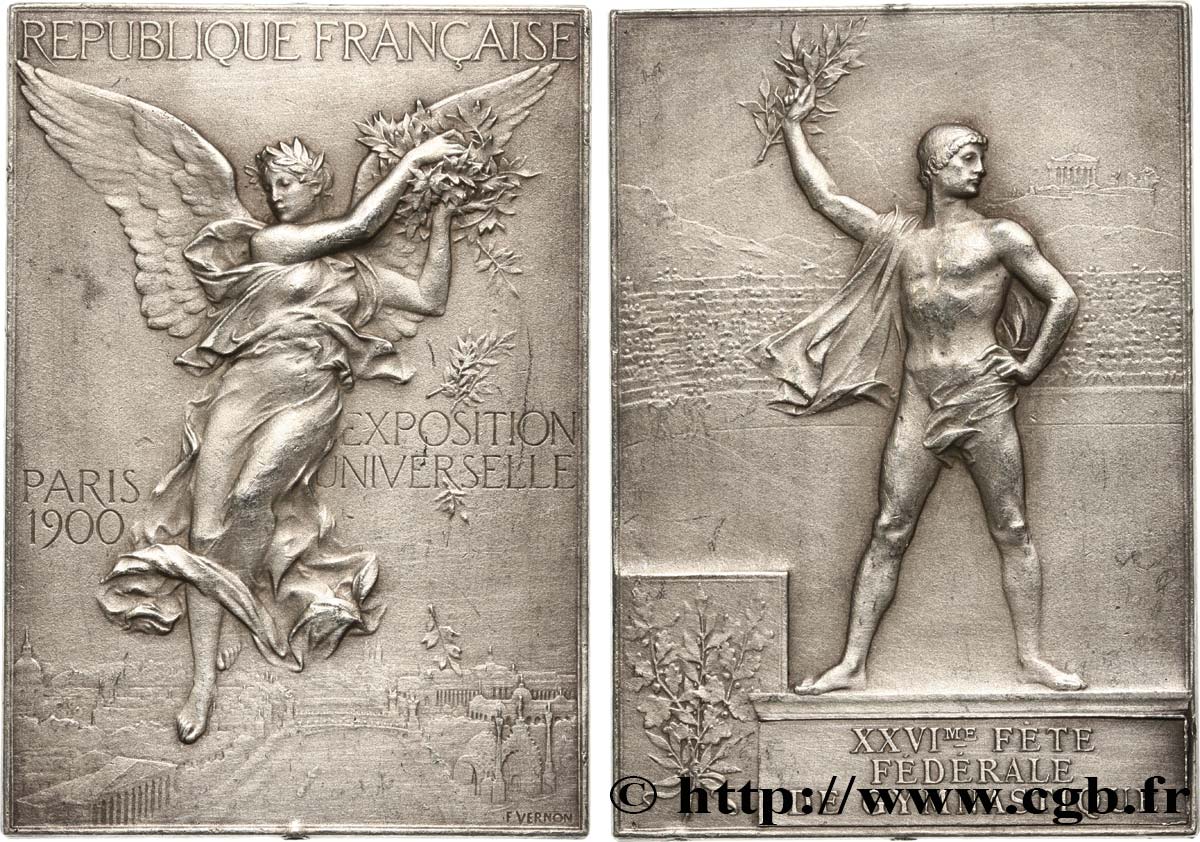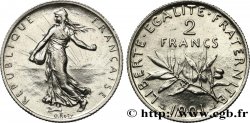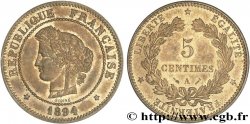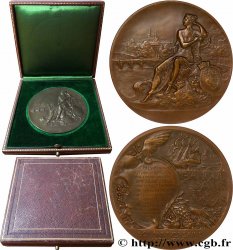fme_509300 - III REPUBLIC Plaquette des Jeux Olympiques, XXVIe fête fédérale de gymnastique
Not available.
Item sold on our e-shop (2018)
Price : 150.00 €
Item sold on our e-shop (2018)
Price : 150.00 €
Type : Plaquette des Jeux Olympiques, XXVIe fête fédérale de gymnastique
Date: 1900
Mint name / Town : 75 - Paris
Metal : silver plated bronze
Diameter : 59,5 mm
Orientation dies : 12 h.
Engraver VERNON (de) Frédéric Charles Victor (1858-1912)
Weight : 50,71 g.
Edge : lisse + corne BRONZE
Puncheon : corne BRONZE
Coments on the condition:
Exemplaire nettoyé et brossé, présentant un trou à 12 heures et un trou à 6 heures. Cela devait probablement servir à maintenir la plaquette entre deux vis. Usure sur certains points hauts
Obverse
Obverse legend : RÉPUBLIQUE FRANÇAISE // EXPOSITION / UNIVERSELLE / PARIS / 1900.
Obverse description : Une victoire ailée tenant des branches de lauriers, tombant sur la capitale ; vue de Paris avec la Seine en contrebas.
Reverse
Reverse legend : XXVI.ME FÊTE / FÉDÉRALE / DE GYMNASTIQUE.
Reverse description : Athlète olympique tenant le laurier de la victoire dans un stade, au fond l’Acropole avec le Parthénon ; cartouche en exergue.
Commentary
Dimensions : 41,5*59,5 mm
Les Jeux olympiques de 1900, Jeux de la 2e olympiade de l'ère moderne, se tiennent à Paris en 1900 à la suite de la prise de décision dans ce sens à l'occasion du premier Congrès olympique (1894). Aucune cérémonie d'ouverture ou de fermeture au programme, mais le 3 juin 1900, un défilé des gymnastes a lieu dans le vélodrome de Vincennes lors de la fête fédérale de l'Union des sociétés de gymnastique de France..
Les Jeux olympiques de 1900, Jeux de la 2e olympiade de l'ère moderne, se tiennent à Paris en 1900 à la suite de la prise de décision dans ce sens à l'occasion du premier Congrès olympique (1894). Aucune cérémonie d'ouverture ou de fermeture au programme, mais le 3 juin 1900, un défilé des gymnastes a lieu dans le vélodrome de Vincennes lors de la fête fédérale de l'Union des sociétés de gymnastique de France..








 Report a mistake
Report a mistake Print the page
Print the page Share my selection
Share my selection Ask a question
Ask a question Consign / sell
Consign / sell
 Full data
Full data



